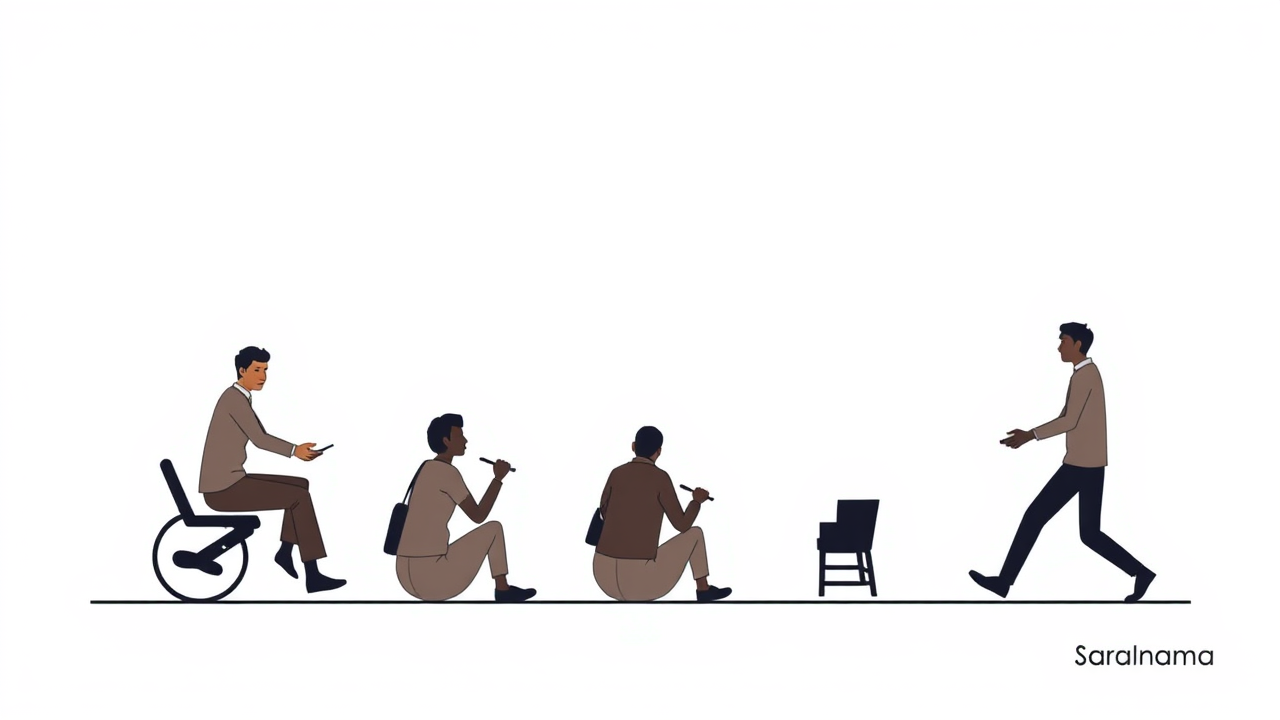The Bhore assembly seat in Bihar, reserved for Scheduled Castes, is witnessing a tough electoral battle. Education Minister Sunil Kumar from JDU is seeking re-election after his narrow 462-vote victory in 2020. His main challenger was initially Jitendra Paswan from CPI (ML), who was arrested in a 2017 case while filing his nomination. The party then fielded Dhananjai Kumar, a former JNU student union president, as his replacement. Jan Suraj has nominated Preeti Kinnar, a social worker. Bhore has an interesting political history. Two brothers, Anil Kumar and Sunil Kumar, have won from this seat representing different parties. Their father Chandrika Ram was Bhore's first legislator and served as Agriculture Minister. Voters express dissatisfaction with local development despite the MLA holding a ministerial post. Many youth migrate to cities like Surat for employment due to lack of opportunities. The constituency has approximately 14.27% SC population and 11% Muslims. Brahmin and extremely backward class voters hold significant electoral power. The arrest of the original candidate has made the contest unpredictable, though local analysts suggest the grand alliance still has strong chances based on caste arithmetic.

Candidate Change After Arrest Creates Uncertainty
Jitendra Paswan, the CPI (ML) candidate, was arrested by police in a 2017 case while going to file his nomination. Police claimed he was wanted and ignoring court summons. Following his arrest, the party quickly replaced him with Dhananjai Kumar, who served as JNU student union president. Dhananjai is campaigning alongside Paswan's elderly mother and wife, calling the arrest politically motivated. However, he faces the challenge of being an unfamiliar face to Bhore voters. Local journalist Suresh Ray believes if Dhananjai gains local recognition, it could create problems for Sunil Kumar. The contest has become extremely close. Some voters say people may vote based on party loyalty despite not recognizing the new candidate's face, while others feel his lack of local identity will impact results.
Voters Disappointed Despite Minister as MLA
Residents of Bhore express frustration over lack of development and employment opportunities. Santosh Kumar Tantwa, 40, from Kushahaan village, criticized Education Minister Sunil Kumar during his campaign visit, questioning what work was done in five years and pointing to a building closed for ten years. Another resident mentioned earning just 20,000 rupees monthly in Surat but working in air-conditioned comfort, something impossible in Bihar. Rahul Pandey, who worked in four countries, now sells milk in his village. He praises Chief Minister Nitish Kumar but remains unhappy with the local MLA. Many youth have migrated to cities seeking better opportunities. When asked about his work, Sunil Kumar highlighted bringing Sudha Dairy and ensuring timely availability of textbooks across Bihar. He also mentioned enabling science education at BPS College with 30 crore rupees allocated.
Caste Equations and Political History
Bhore constituency has approximately 14.27% SC voters and 11% Muslims, making them crucial vote banks. Ravidas community and sub-castes form a decisive voting bloc. Brahmins comprise 4-5% but wield significant influence alongside extremely backward classes. Kushwaha voters, considered JDU supporters, also hold substantial numbers. Analyst Suresh Ray explains that SC and Brahmin votes exceeding 25% determine victory. If SC-EBC-Muslim alliance forms, the grand alliance's win becomes certain. The seat has alternated between parties. BJP's Indradev Manjhi won in 2010. In 2015, Anil Kumar won on Congress ticket as part of the grand alliance, defeating Manjhi by 14,871 votes. His brother Sunil Kumar entered politics in 2020, winning by just 462 votes for JDU. BSP's Surendra Ram may split opposition votes this time.
Source: Link
